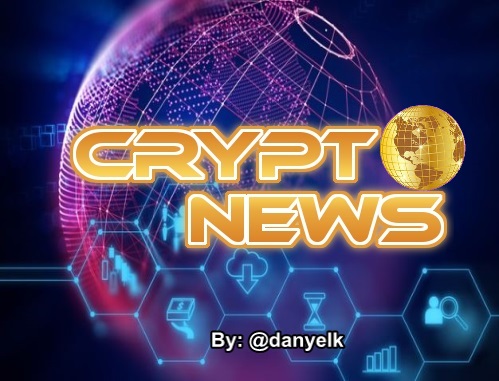Your Crypto News on Steemit February 15, 2018

- Slovenia: Destination for Blockchain Companies?
- Crypto Credit Card Provider Volinex closes the Doors!
- Time for Litecoin: 5th Place recaptured!
- Microsoft develops Digital Identities!
- Indian Crypto Exchanges want to create a User Database!



Slovenia was always willing to become a technology-friendly country. Many governments have referred to Slovenia as the Silicon Valley of Europe, but so far there has not been a major breakthrough in this area. Now, however, it seems that with the advent of blockchain technology, the country is approaching this ambitious vision. The government of Miro Cerar is increasingly aware of this.
For this reason, Prime Minister Miro Cerar, Minister of Economic Development and Technology Zdravko Počivalšek and a number of State Secretaries attended a working meeting in Viberate's premises last week. Together with several other successful domestic blockchain start-ups, they discussed the benefits and pitfalls of this technology and the goal of making Slovenia more attractive to blockchain companies at home and abroad.
The initiative for cooperation between the Slovenian government and the company Viberate was launched at the World Economic Forum in Davos, when Secretary of State Tadej Slapnik and Viberate's COO and co-founder Vasja Veber sat around a round table under the auspices of one of the most prominent development companies in the field of blockchain technology. The panel discussed the importance of corporate-government cooperation in blockchain technology development and the creation of friendly ecosystems that encourage the creation of innovative companies. At a working meeting, the representatives of Viberate, InsurePal, ICONOMI and SunContract presented their activities to the President and the Ministers and explained the obstacles to their operations in Slovenia. They underlined the areas in which the government can help make the country friendlier to such companies.
Slovenian Prime Minister Miro Cerar said:
After the meeting, Vasja Veber highlighted the benefits of operating in a small country:
What will Slovenia get from the Slovenian Blockchain Alliance?
At the event, the recently established "Blockchain Alliance CEE" interest group was presented, which aims, among other things, to enable a stronger penetration of new markets and to facilitate the presentation of Slovenia as a global blockchain destination. The Economic Interest Alliance will also raise awareness, provide education and advise companies embarking on a blockchain path. At the presentation of the alliance, Matej Gregorčič, general director and co-founder of Viberate, said:
Slovenia is small country that covers an area of 20.273 km² in the Central European region and borders with Austria, Italy, Hungary and Croatia. With a significant geostrategic position, it connects Balkans and Eastern Europe with the West.
There is more: with only a little over 2 million people, Slovenia has delivered a one-of-its-kind result: the country has the highest number of successfully finished ICOs per capita.
With all the knowledge, ideas, business connections and informal business alliances accumulating on such a small, but extremely significant area, the only logical next step is to formalize the alliance and set the route to the common goal.


The Swiss start-up Volinex had started to find a debit card solution for cryptocurrencies. It wanted to respond to the problems that the crypto-community caused by the loss of license of WaveCrest by the credit card provider VISA. Now, however, Volinex itself has to stop its business.
At the beginning of January, there was a big cry in the crypto community: from one day to the next, almost all providers of crypto-debit cards, such as Bitwala or TenX, were experiencing considerable problems, which meant that the cards offered no longer existed could be used. One of the reasons for this was that the credit card provider VISA had withdrawn its license to activate the cards from its issuing bank WaveCrest, which is responsible for the European Bitcoin debit cards.
The problems at WaveCrest called the Swiss startup Volinex on the plan. On January 14, Volinex started offering its crypto credit cards and offered a total of 100,000 Volinex cryptocards. The Volinex platform wanted to provide a wallet from which cryptocurrencies in euros and US dollars can be sold at current prices. From there, the money should be loaded on a debit card, in the long term, it should also be possible to put money on a linked IBAN account and make transfers directly from a crypto account. The startup also held a pre-ICO of the VNX token, which started on December 15, 2017 and was due to expire on February 28.
Now the project has found a sudden and premature end. As the team behind Volinex announced on the project's website, Volinex ceased its work immediately after a long struggle "against unsubstantiated fraud, legal regulations, hacker attacks and the FIAT world," as Volinex puts it. Unfortunately, ultimately, all major credit card issuers would have opted against Volinex's vision and another crypto engagement.
As the reasons for the premature failure, the Volinex team is mainly responsible for the recurrent scam allegations against the project. Thus, towards the end of the planning by hostility near-untenable conditions prevailed, even physical violence should have been threatened the employees of Volinex. The supposedly hostile attitude of many national governments is also cited as justification.
For those who have already invested in Volinex cryptocards as part of the pre-order, a refund will be provided.


Litecoin has climbed to its highest level in over a month, bringing its market capitalization in excess of US $ 10 billion to market for the first time this year. With this, the "silver coin" succeeds for the first time since December in 5th place of the crypto currencies. There are several reasons for the upswing.
The crypto market resembled much of the year so far of a closed bay, in which the flood lifts all ships alike, the subsequent low tide, the collective fleet but also collectively back on the ground of the facts. Occasionally, outliers - positive as well as negative - made a name for themselves, but the basic thrust remained the same. Finally, the market movement stopped almost entirely and stabilized at just over $ 400 billion in market capitalization.
Now Litecoin sets out to break the prevailing sideways movement since late last week. In the last 24 hours, the cryptocurrency has gained more than 30% - one third of its previous market value. The price is now above the $ 200 mark and has a market capitalization of $ 11.5 billion. A side effect of the increase in Litecoin relative to the other top 10 coins is the recapture of fifth place. Cardano claimed this for himself.
Reasons for the Price Increase
Essentially, there are two reasons that indicate such a sudden increase in the coin. One reason is the announcement of the upcoming Litecoin Hard Fork, which will lead to the emergence of a new cryptocurrency called Litecoin Cash. Similar to the Bitcoin hard fork that resulted in Bitcoin Cash, investors are hoping for split free money.
A second message affecting the Litecoin network was the announcement of LitePal for this year and the imminent launch of LitePay. Both Litecoin-based platforms are aimed at payment processing and are designed to make the entire Litecoin transaction process easier.


In a blog post on Monday, Alex Simons, Director of Program Management at Microsoft, shared his vision for decentralized digital identities. The Blockchain should help to regain control of their own data.
Microsoft wants to work for digital identities that not only provide more privacy and security, but also put control in the hands of the principal. According to Simons, blockchain technology is suitable for enabling distributed IDs (DID). Ideas for using blockchain and other distributed ledger technologies have been developed in the last 12 months. Microsoft Product Identity Division Product Manager Ankur Patel has presented the results and the resulting principles.
Data Processing Today vs. Digital Identity Tomorrow
Patel sees a need for a digital identity in the modern way of life, where digital and physical reality merge. This should increase both security and privacy in both realities. Especially those people who still live without proof of identity, should benefit from the freedoms that can bring a digital ID with it. This includes the control over your own data. Currently, these are distributed to many providers by agreeing to data usage for apps and other services. By agreeing to their data being collected, used and kept, users lose control over what exactly happens to their data. Time and again headlines about data breaches and identity theft on the front pages of daily newspapers. This should be prevented by means of an encrypted digital hub (in German about "node"). Users should be able to store their identity data on it and thus be able to control access:
Microsoft's Guidelines for developing DIDs
For the development of a decentralized identity (DID), Microsoft has developed guidelines that explain how our data is currently handled. Above all, they show what needs to be changed in order to digitize and decentralize identity data.
Ankur Patel explained:
Traditional identity systems are designed primarily for authentication and access management. To decentralize the data, the authentication should be made through certificates. These attestations are assertions that are validated by other entities, thereby proving aspects of identity. This prevents the transmission of a flood of data and only reveals what is really relevant. Especially apps that offer features that are tailored to their users then only receive the data that the user wants to pass on. Patel emphasizes that a stable decentralized identity system accessible to all can only be achieved through open source solutions. Therefore, Microsoft has been involved for a year in the Decentralized Identity Foundation (DIF). As part of this, the participating organizations jointly develop decentralized identifiers (DIDs). Specifically, this is a W3C specification that defines a common document format for describing the state of a decentralized identifier. In addition, the DIF works on identity hubs and a server that is supposed to solve the DIDs via blockchains. Furthermore, credentials should be checked for a W3C specification by defining a document format for encoding DID-based credentials.
Step by Step
The Microsoft Authenticator app can already be used today to prove its own identity. As a next step Microsoft wants to experiment with decentralized identities. These should be integrated into the app. The user should then be able to decide whether he wants to use the Microsoft Authenticator as a user agent to manage identity data and cryptographic keys. However, only the ID is anchored in the blockchain, the identity data meanwhile lie in a non-visible Microsoft hub outside the blockchain and are coded with the cryptographic keys. However, whether it all works as Microsoft imagines can not be tested in theory. Therefore, Patel is already asking users for help and feedback.


Indian crypto exchanges plan to create a common user database for their clients and their transactions. The data of the customers would be connected either with their Aadhaar-ID or with a tax number. The country's government continues to work actively to regulate cryptocurrencies.
User Database for Crypto Trader
According to media reports, crypto exchanges are interested in creating a user database. According to the Economic Times, this will "help users create and maintain a record of transactions in real time". The seven exchanges aiming for this goal are members of the Blockchain and Crypto Currency Committee of the Internet and Mobile Association of India.
Ajeet Khurana, head of the committee, emphasized that "this is one of the proposals that we are making to the Commission of the Government, which is investigating cryptocurrencies". Another representative of the industry explained:
The Aadhaar ID is a 12-digit identification number that every Indian receives based on his or her biometric data. This is the world's largest biometric identification system. It had 1.19 billion users in November of last year. The PAN is a 10-digit number that identifies individuals, families and businesses that need to pay income tax. This is issued to Indian citizens and foreigners with valid visas.
The members of the committee want to submit the proposal as early as next week. The government is expected to release its position on cryptocurrencies in March. It is expected to use an authority to oversee the crypto market.
India's Crypto Regulation
Last week, Khurana said the Indian government would work to establish clear framework guidelines for cryptocurrencies and their exchanges.
He estimates that about five million Indians use or have used cryptocurrencies in the past. "And this number is growing," he emphasized.
Image sources:
- Post header created by myself
- Article headers created by myself
- https://coinmarketcap.com/
Video source:
If you missed my last crypto news just click here!

I wish you all a great Thursday!
ⓁⓄⓥⒺ & ⓁⒾⒼⒽⓉ
Best regards
@danyelk

Hatte über Nacht ein unerwartetes Problem mit MB. Die haben mich 30 mal upvoten lassen in 5min und so 24% VP verbraucht lol. Wahrscheinlich wegen dem nodelag
Alles ich drücke dir die Daumen das du das Problem lösen kannst schönes Wochenende wünsche ich Dir.
Okay krasse nummer soll ich heute noch bei 4 bleiben oder geht wieder mehr
...
okay cool wieviel geht dann morgen
siehe chat
bin nicht zu hause ich check morgen den chat
Smart governments will support crypto...
And thedumb ones will ban it!
I think that with Microsoft behind the Decentralized Digital Identities, in spite of all challenges, very soon we will be able to use them. Too bad though, that the identity data wouldn't be on a blockchain...
As to Slovenia, I am very happy for them. My birth country, Poland, is Slovenia's close neighbor, but Polish government's attitude about cryptocurrency is far different. Poland has added Bitbay.net, Polish, well-known crypto exchange, trusted by over 400,000 people, to their list of KNF warnings. (KNF stands for Commission of Financial Supervision. This is a governmental organization working hand in hand with Polish Ministry of Finance.)
When a company lands on this list it's pretty much equal to a public announcement that it's dangerous to do business with them for certain reasons. Financial organizations from the entire European Union will now have to take it into consideration as well because every company from the KNF's list may face official court charges.
There are talks that Polish government plans on restricting crypto or heavily regulate it. I am not too proud of them about that... though there are many things that they are doing good for Polish people and economy.
I don't have much time I will be at my parents in law this weekend and they come in a few mins to pick me up so see you next week. But I have done a lot of work just need to send it from my bro in laws laptop hehehe
I have a lot of friends from Poland there are a lot in Berlin and I been a couple of time in Poland cool people and cool country .
Okay need to go c ya soon
Enjoy your weekend :)))
Thx, I hope your weekend was super and I hope that one day you will share where exactly lies your United Federation of Planets, is it somewhere in Europe, is it Berlin??
Ahahaha love it! It's great to see step after step heading in the right direction for popularisation of crypto and mass adoption ass well. I'm so happy about the Slovenian government cause they're embracing this technology; which, compared to all the other govts that all they want is to hold clinched to their control on population and so on. Great news! Thank you :D !! Following you now. Yeay !
Your welcome and thanks for the follow!
Yes it's a great time to be alive and yes it's awesome what a small country like Slovenia is doing I wish them all the best and many success would be cool if they start one day there own state cryptocurrency like the Petro in Venezuela.
Have a nice day and steem on :)))
This is great news, and a great given example as well. We're currently making our time even more valuable because of all the aspects in a blockchain. It's not hard to think that governments and several important banks will try to reach as more of us they can. But the main idea should be one in common, we need the access to new purchases and transactions, but also to show the blockchain transparency and security. I think we're definitely on the right track, and we're getting noticed every year by everyone. Cheers and thank you for making this post We're winning big time, for sure!
Thank you for sharing those articles that talk about digital currencies ,,, they really are useful my friend ,,, they are united by the latest news related to currencies،، keep it ....
Good luck my dear friend @danyelk👍👍👍
Thank you my friend need to check on your blog what for great art you did see ya later.
I hope you and your family are okay :)
Stay blessed!
Yeah viberate is one of the best projects in the crypto world, that will certainly revolutionise the whole live music industry ❤
Nice News